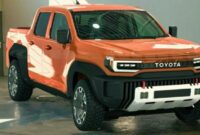Toyota is taking a new approach with its completely redesigned Prius rental program in Japan. The automaker will give customers the opportunity to earn 10 percent lower monthly rental payments and all they have to do is select a new service the company is offering.
The service will update the hybrid vehicle’s safety features and marks the first time Toyota has offered an over-the-air software update for a model. This move tries to promote new technology and also tries to cut rents and maintain the price of used cars in Japan. Toyota’s leasing division in Indonesia, KINTO, confirmed the new program earlier this week.

9 Photo
OTA updates are nothing new in the automotive industry. Tesla pioneered the technology and several manufacturers have followed suit, including Polestar, Volkswagen, Ford, BMW and others. Toyota is now taking the first step and they will focus on vehicle safety systems, including collision avoidance systems and other features.
“Tesla’s customers are, simply put, high earners, and many of them are willing to pay for new and good things so that their product becomes a hit in that market segment,” Shinya Kotera, president of KINTO, told Reuters in an interview. “Toyota customers are not like that. They are not people who want to pay extra for new technology. They are looking for something good, reliable, and cheap.”
Kotera also confirmed that the Prius is the first vehicle to benefit from the new leasing program, but it will certainly not be the only one to do so. Toyota is looking to expand service to other vehicles and eventually make the new leasing program available globally.
As for the new Prius, in the United States, the model comes with a new 2.0-liter engine and a newly developed lithium-ion battery pack. System output is rated at 194 horsepower (142 kilowatts), which is enough to accelerate the hybrid from 0 to 60 miles per hour (96 kilometers per hour) in 7.2 seconds. There is also a plug-in hybrid variant with the same 2.0-liter engine that develops 220 hp (161 kW) and sprints to 60 mph (96 kph) in just 6.6 seconds, making it faster than the new Acura Integra.



